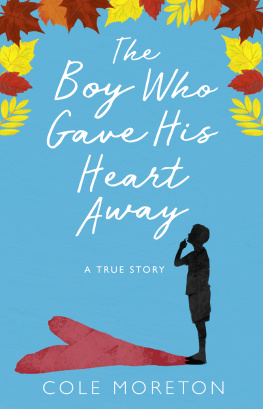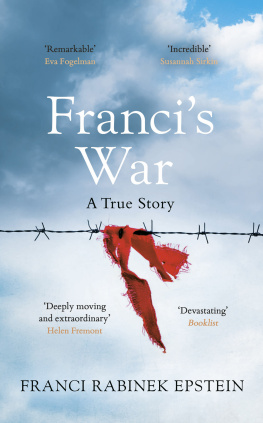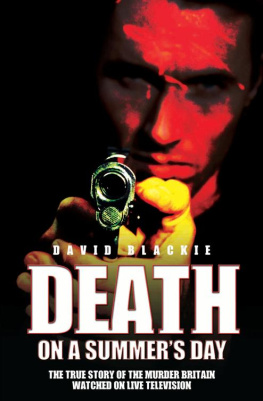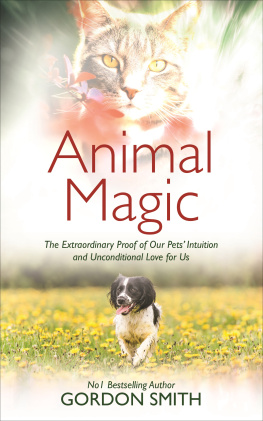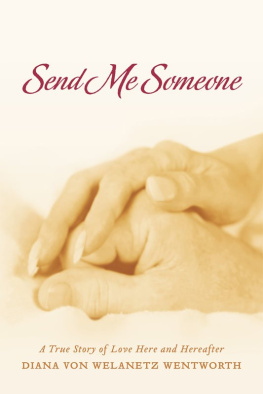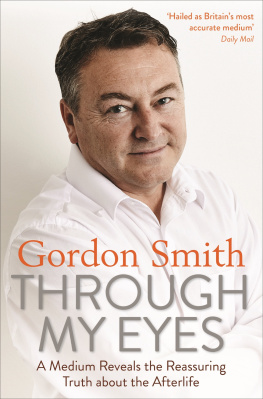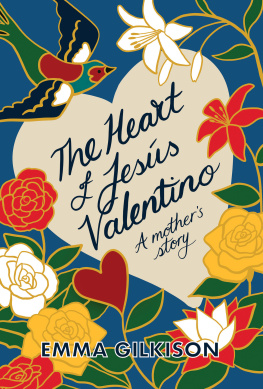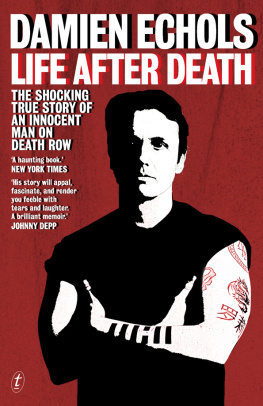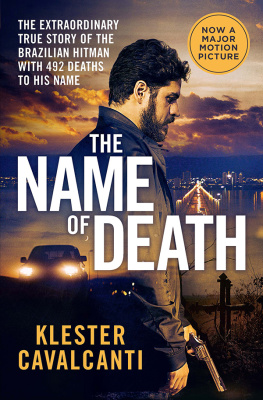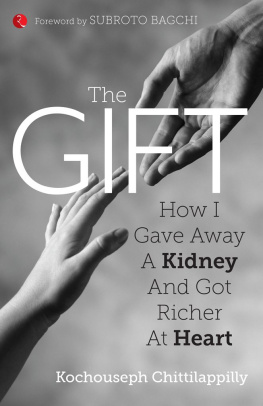
HarperElement
An imprint of HarperCollinsPublishers
1 London Bridge Street
London SE1 9GF
www.harpercollins.co.uk
First published by HarperElement 2017
FIRST EDITION
Cole Moreton 2017
Cover design and illustration Micaela Alcaino HarperCollinsPublishers Ltd 2017
A catalogue record of this book is available from the British Library
Cole Moreton asserts the moral right to be identified as the author of this work
All rights reserved under International and Pan-American Copyright Conventions. By payment of the required fees, you have been granted the nonexclusive, non-transferable right to access and read the text of this e-book on screen. No part of this text may be reproduced, transmitted, downloaded decompiled, reverse engineered, or stored in or introduced into any information storage retrieval system, in any form or by any means, whether electronic or mechanical, now known or hereinafter invented, without the express written permission of HarperCollins e-books.
Find out about HarperCollins and the environment at
www.harpercollins.co.uk/green
Source ISBN: 9780008225728
Ebook Edition April 2017 ISBN: 9780008225711
Version: 2017-09-20
Contents
This is the true story of two boys who never met, but who are bound together in the most astonishing way. Marc was fit and fast, a star player in his local football team. Strong and brave but shy and gentle, he had a sharp face, sandy hair and striking green eyes. Martin was big, bright and breezy, a loving lad who was always up for a laugh, with a mop of brown hair and a friendly face that made everyone smile. Their names were alike and they were more or less the same age, either side of a sixteenth birthday, but they lived hundreds of miles apart in Scotland and England and never even knew each other existed. Then, one summer, they both fell down. Just like that, without warning, they were taken seriously ill at the same time. Thats where we begin. One of these boys will die. And without ever knowing it, he will save the others life.
This is also the story of their mums, Linda and Sue, who will go through grief and worry enough to break most of us. I have got to know the families, the medics and one of the boys well over several years and this book is based on their own accounts of what happened, which are terribly sad but also inspirational and full of wonders. Towards the end of the telling, the mother of the boy who was lost will meet the boy who was saved, now grown into a man. She will reach out and put her hand flat against his chest, to feel the heart of her own poor son still beating away inside him. Life will have sprung from death, miraculously. But before that extraordinary moment can happen, there must be a tragedy. Marc or Martin. One of these boys is about to give his heart away
We are not meant to touch hearts. Hearts are away, hidden, at the centre where they cant be got at. Protected. Vital. The seat of the soul. If a heart is touched, it can only be a miracle.
Louisa Young, The Book of the Heart 2002
One
Marc was in agony, writhing around on the back seat of the car and calling for his mum. She was driving as fast as she could, up to the hospital and over the red warning lines, straight into the ambulance bay, blocking the way for everyone else. Linda didnt care. She thought her son was dying. She was right. She leaned on the horn again and again and the loud, flat sound echoed under the canopy, an alarm and a plea for help. Come out! Come on! Where are you?
Marc couldnt walk and there was no way she could carry a hefty, dazed teenager out of the car and all the way through the doors to Accident & Emergency, but surely somebody in there would hear the noise and wonder what was going on? A hospital porter came striding over with an angry face but Linda shouted at him: Im not moving. Not until my son gets seen!
The porter was confused, he knew her as a friend and a nurse who worked the night shift. Then he looked into the back of the car and saw Marc in a terrible state.
Holy crap, Linda is that your boy?
Yanking open the car door, he swore loudly and waved at a colleague for a trolley. Marc didnt answer his questions and Linda couldnt get the words out right. Just help him, please.
The porter took hold of Marc under both arms to lift him out and tried to be reassuring. Well take him, hen. You get this thing moved, yeah?
Linda turned the key, put her foot down and the car lurched forward out of the bay. She left it half up on a pavement and ran back through the double doors into the gloomy reception area where the faces of the sick and injured looked up at her. Where the hell was Marc?
This way, shouted a voice she knew and Linda saw the fuss around her son first. A couple of nurses in blue, busy with machines and a tangle of wires and tubing. More coming over. A young doctor in a white coat saying something about the lad being only fifteen. Marc was on the trolley in the middle of the growing crowd, already with a clear plastic breathing mask over his face and then Linda knew she just knew, in her shock and horror that this was as serious as it could be.
My poor wee man is dying away
When the sun shone his hair went blonder. He had lovely green eyes, just like his father, says Linda now, sitting cross-legged on a sofa and remembering Marc as a child. Her hands turn over and over on her lap, a little sign of anguish. Marc was a quiet boy. A shy boy. The best boy ever. The mothers and fathers of children who have been in danger or lost often say things like that, but they are not deluding themselves. Its self-defence. If mums didnt forget the pain of giving birth, no more babies would be born. In the same way, we try to forget how scary it is to be a parent. We wrap the good times around us instead, for protection. He had the best nature of all my children, says Linda in her urgent, breathy voice with a strong Scottish accent. Any one of the others will tell you that.
She had only just turned forty when Marc fell ill in the summer of 2003, but Linda already had four sons and a daughter aged between thirteen and nineteen. The kids had been raised in the beautiful countryside west of Glasgow but they now lived with her or close to each other in houses and flats around Johnstone, a town struggling for an identity. Linda loved being a mum, and thank God for that she says with a laugh. Id been pregnant for the whole of the Eighties!
The family name is McCay, to rhyme with hay. She was no longer married to Norrie, the father of her children a sharp, funny guy who worked as a roofer but Linda still used his name and he was still in all their lives. Together or apart, divorced or not, we were good parents.
Linda worked four nights a week as a nursing assistant at the Royal Alexandra Hospital in Paisley, a few miles from Johnstone. She relied on her mother and daughter for help with the young ones. We all hung out together, we were still a close family. The boys supported Rangers, the proud old Glasgow club. Ryan, the second eldest lad, was a professional footballer heading for the Scottish Premier League and Marc wanted to get there too, so he played the game any time he could: at school, on the field, at midweek training, in the league on Saturday when the scouts from the big clubs were watching, at the park with his mates on Sunday, anywhere. Kicking and running, shooting and scoring. Banging them in. He was strong and fast up front the top scorer in his team a fit lad with a good pair of shoulders and a sharp face under his fringe of sandy hair. He could have made it, says Linda. A lot of people said Marc was a better footballer than his brother. He was a happy lad, chasing his dream. Then a virus came and attacked him, out of the blue.

